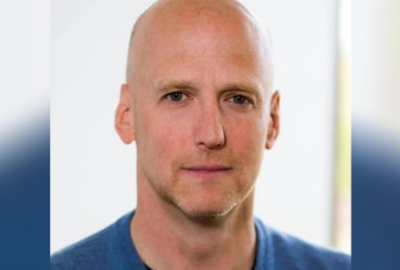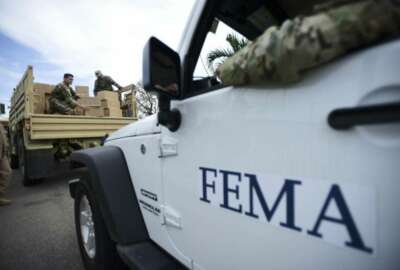
Federal contractors warned to prepare for stricter oversight with new administration
After noting some big corruption enforcement cases, lawyers at one firm are telling clients, including federal contractors, to get ready for increased levels of...
Best listening experience is on Chrome, Firefox or Safari. Subscribe to Federal Drive’s daily audio interviews on Apple Podcasts or PodcastOne.
After noting some big corruption enforcement cases, lawyers at one firm are telling clients, including federal contractors, to get ready for increased levels of investigations and enforcement. With why and how companies should prepare, Federal Drive with Tom Temin turned to Hogan Lovells partner Peter Spivack.
Interview transcript:
Tom Temin: Mr. Spivack, good to have you on.
Peter Spivack: Thanks so much, Tom, good to be with you.
Tom Temin: And is your view that corruption enforcement investigations from the federal government will increase – is that because of the change to a Democratic administration, where there tends to be more of this type of, maybe, scrutiny? Or are there other causes behind this?
Peter Spivack: I think there are a couple of causes, Tom. I mean, certainly one is the change in the administration. Traditionally, Democratic administrations are more focused on pursuit of corporations as well as individuals. They tend to be more active in [Foreign Corrupt Practices Act] enforcement. That said, the Trump administration certainly was not inactive and brought a number of record-setting cases.
Tom Temin: Okay, and are you primarily looking at overseas corruption-types of cases, or maybe federal contracting-related False Claims Act-types of things? What is it you’re anticipating?
Peter Spivack: I think there’s going to be an expansion of all of those things, Tom. The federal contractors, for example, are often multinational. And so they’ll participate in tenders with governments across the world. I think we’ve also seen a real growth in the last 10, 15 years in False Claims Act activity. And so I think that it’s really a multi front assault on federal contractors.
Tom Temin: Because the Foreign Corrupt Practices Act seems to come in waves. You hear a lot of cases for a couple of years. And then for many years, you may hear very little about it. So is it on the wane as a practice? Or is it on the wane as something that the Justice Department kind of comes and goes with? Do you think?
Peter Spivack: Well, I think part of that may simply be a public perception. Because if you look at the statistics, and really, since the Foreign Corrupt Practices Act was passed, gosh, you know, close to 35 years ago, the enforcement direction has been up. The trend has been up. The number of cases, the number of companies and individuals, and the size of the settlements and resolutions, has all trended up. Dan Kahn, who is the chief of the fraud section at the Department of Justice, actually was interviewed by another media publication yesterday. And when that story came out, he said that they have a pipeline of FCPA cases that is as active and he would say, even more active than ever.
Tom Temin: And just out of curiosity, what’s your sense of what is driving that? Are governments abroad, getting more receptive to corrupt practices, as they’re perceived in the United States? Or are companies getting more desperate to keep those contracts going, and as the revenues get tight in the pandemic, and so forth, for governments around the world?
Peter Spivack: We’ve seen a couple of trends. The first is we do have a lot of financial pressure that companies are under as a result of the pandemic. There’s been, as you know, I think everyone knows, a real decrease in commercial business, as air travel and associated contracting has decreased. That’s, you know, removed or put pressure on a sector or a revenue stream, if you will, that those companies often have because they may do both government and private sector contracting. A second trend that we’ve seen that’s been very pronounced, has been increased legislation around the world. The United States and other entities like the OECD, the Organization for Economic Cooperation and Development, and the UN, have been encouraging national governments to enact anti corruption legislation. Countries are receptive to doing that, because there are benefits that come along with OECD membership. They also create an environment that appears more friendly and receptive to business. And multinationals may be more willing to enter into those markets. But it’s not just getting laws on the books. It’s also an increase in enforcement. We’ve seen a real effort. And that effort has paid off by the United States and other countries to create ties across borders, cooperation among national law enforcement entities, informal means of communication. And that pays off in the ability to develop cases more quickly, to get evidence across borders and have it used in investigations in a multi country way. And so we’re also seeing a rise in multi country settlements. So it’s not just the United States, in the world as the policemen. We’ve got countries like France and the UK and Brazil and Germany and many others that are taking a much more active role in enforcing against corruption within their own borders.
Tom Temin: We’re speaking with Peter Spivack, he’s a partner at the law firm Hogan Lovells. And as you note that companies can expect more cooperative investigations conducted by several countries at once. So the net gets denser. It may not even originate in the United States, but nevertheless, the Justice Department might join in, in other words.
Peter Spivack: That’s right, that’s absolutely right. They may get a call or a company may have an interest, if it’s dealing with an issue, for example, in Italy, but it knows that it is located in the United States, or it is a public company, and therefore, it raises capital on the US markets. It may wish to go into the Department of Justice in the U.S. Securities and Exchange Commission, and make what’s called a voluntary disclosure. And it’s very similar to a disclosure in the defense contracting context in that one goes into the commission and says, you know, we’ve got an issue, we want to bring this to your attention, we want to get the potential benefits of reduced penalties, even, you know, potentially mitigated structures of settlement, a non-criminal resolution, for example, and we are committed to full cooperation, fully providing information, you know, ensuring that our compliance programs get enhanced in a way that we hope, reduce or mitigate or even eliminate this problem in the future.
Tom Temin: And what about China? Because we’ve been talking about the OECD, the Organization for Economic Cooperation and Development. There’s a lot of nations, but actually only 37. China’s not in there, as more companies deal with China. How does that affect all of this because China is not a normal place, relative to the OECD countries for doing business.
Peter Spivack: That’s absolutely true. But it is also a place that has its own robust, anti corruption enforcement. You know, the current premier of China has made and corruption one of the hallmarks of his administration. Now, we, you know, one may suspect that it’s used for other purposes. But the reality is that any company that goes into China has to deal with the very real possibility that it could be exposed to FCPA risk. And so in doing that, one has to be mindful, first, that there’s a responsibility if there’s a US jurisdiction over that China activity, you have to be extremely careful and have a well-developed structure, but also that one could be subject to local enforcement, whether that’s through the Administration for Industry and Commerce – the AIC’s – which are, essentially very strong regulators in China at the local, provincial and national level. Or even a public police authority. China’s a huge market, it’s a very inviting market from the standpoint of the financial rewards, but it’s also a market that one’s got to be very careful in entering.
Tom Temin: And looking domestically, what’s your outlook for just plain old False Claims Act cases?
Peter Spivack: We’ve seen a real rise. I mean, there are a couple of trends in that, I think. I mean, the first is that, frankly, the government is spending more money. We’ve got, through the CARES Act and other COVID relief legislation, just a huge amount of money being put into the economy. Some of that is going to businesses that need relief. Some of it is going to potentially, cases where there are less than truthful representations being made. Those are ripe for false claims enforcement. And anytime we see, you know, a spike in federal spending. I think that what goes along with that, at the other end is a spike in enforcement, because, you know, unfortunately, there’s just fraud that creeps into the system. Another trend that we’ve seen in the False Claims Act area is there’s been the rise of a very, frankly well-funded and sophisticated plaintiff bar, which in the False Claims Act context is called relators. And those relators counsel are smart, they’re well-equipped. They do analysis of data. They may have economic experts, they have all the traditional features of well-funded securities plaintiffs bar and they’re bringing more cases and even if there’s a provision in the False Claims Act that allows the United States to intervene and take over the case, we’re seeing a lot more cases that the U.S. Department of Justice has declined to take over, continuing with private relayers counsel. And that means that there’s that increase in activity is, we think, very much going to continue for all those reasons.
Tom Temin: So this would be then the year of the compliance officer?
Peter Spivack: I think it’s perhaps been the decade of the compliance officer. There’s been a real professionalization in that industry and that profession. People are going beyond just simply let’s have a code of conduct and a set of policies. There’s more emphasis from the U.S. government on ensuring that the compliance program has not just, you know, sort of the written elements and the training and the certifications. But there’s monitoring and auditing. There’s harnessing of data within a company as a means of examining compliance. And the flow of data really is just a way to try to look at patterns of activity and see if there are anomalies that come out. And that’s been a real drumbeat. Or it’s a drum that the Department of Justice and others had been beating, and I think rightfully so because it it is a source of information that companies can use to try to spot issues before they become maturing into real problems.
Tom Temin: Well, nobody can say we didn’t warn them. Peter Spivack is a partner at the law firm Hogan Lovells. Thanks so much for joining me.
Peter Spivack: Thank you. Thanks very much for having me.
Tom Temin: We’ll post this interview along with a link to the firm’s outlook at FederalNewsNetwork.com/FederalDrive. Here the Federal Drive on your schedule, subscribe at Podcastone or wherever you get your shows.
Copyright © 2024 Federal News Network. All rights reserved. This website is not intended for users located within the European Economic Area.
Tom Temin is host of the Federal Drive and has been providing insight on federal technology and management issues for more than 30 years.
Follow @tteminWFED
Related Stories

Disaster recovery assistance in post-COVID environment: Mitigating risks of fraud while maintaining benefits of desktop validation




